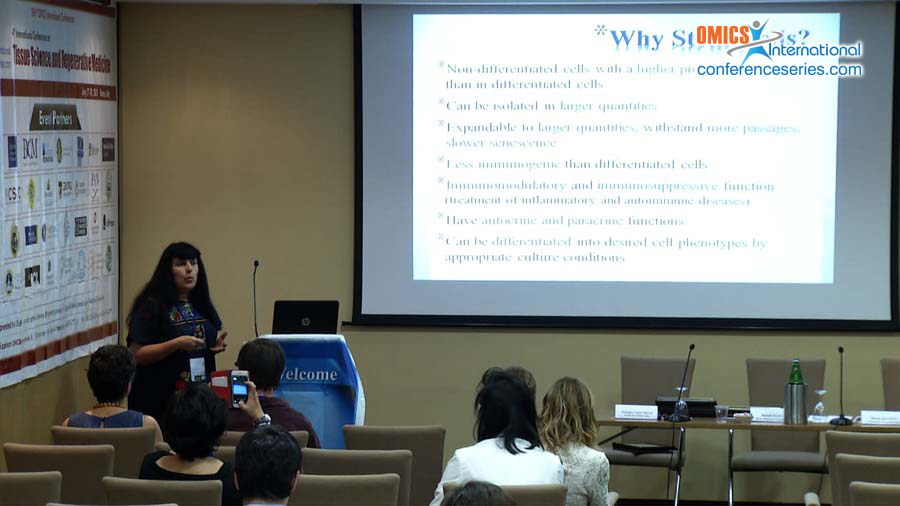
Lucie Bacakova
Institute of Physiology
Czech Republic
Title: Adhesion, growth and osteogenic differentiation of human adipose stem cells isolated by liposuction under low and high negative pressure
Biography
Biography: Lucie Bacakova
Abstract
Adipose-derived stem cells (ASCs) are promising for cell therapies and tissue engineering. Adipose tissue with these cells can be obtained by a relative non-invasive method, e.g. liposuction. The quality and quantity of ASCs can be influenced by the amount of negative pressure during liposuction. In this study, we focused on ASCs isolated from lipoaspirates taken from the same patient (a 43-year-old woman) under low negative pressure (-200 mmHg, LP) or high negative pressure (-700 mm Hg, HP). The ASCs were isolated by a method described by Estes et al. (Nat Protoc 5: 1294-311, 2010). Flow cytometry, performed in the 2nd passage, revealed that the cells contained markers typical for ASCs; only the population obtained under LP was more heterogeneous. The number of isolated ASCs and their subsequent proliferation activity in vitro was higher in cells obtained under HP. These differences persisted in passaged cells (tested up to 3 passages), after freezing and thawing of cells and also after seeding on Ti-Al-4V samples with various surface modifications (e.g., grinding, polishing, grit blasting, tarnishing), developed for construction of bone implants. However, when confluent ASCs were exposed to osteogenic medium (containing ascorbic acid, dihydroxyvitamin D3, dexamethasone, beta-glycerol phosphate and L-glutamine) for 5 days, the osteogenic cell differentiation, measured by intensity of fluorescence of collagen I, alkaline phosphatase and osteocalcin, was more pronounced in cells obtained under LP. Thus, ASCs obtained under both pressures have specific advantages, and their choice depends on their application, i.e. if their rapid growth or early differentiation is needed.

